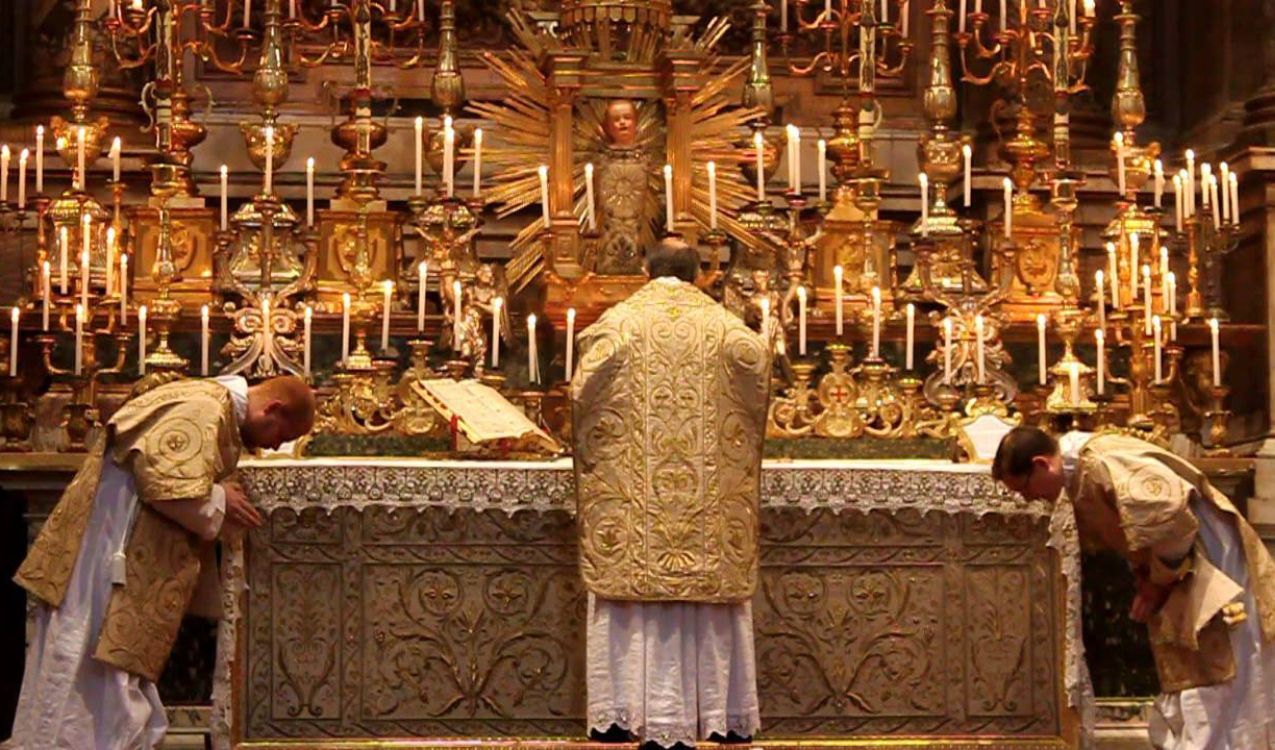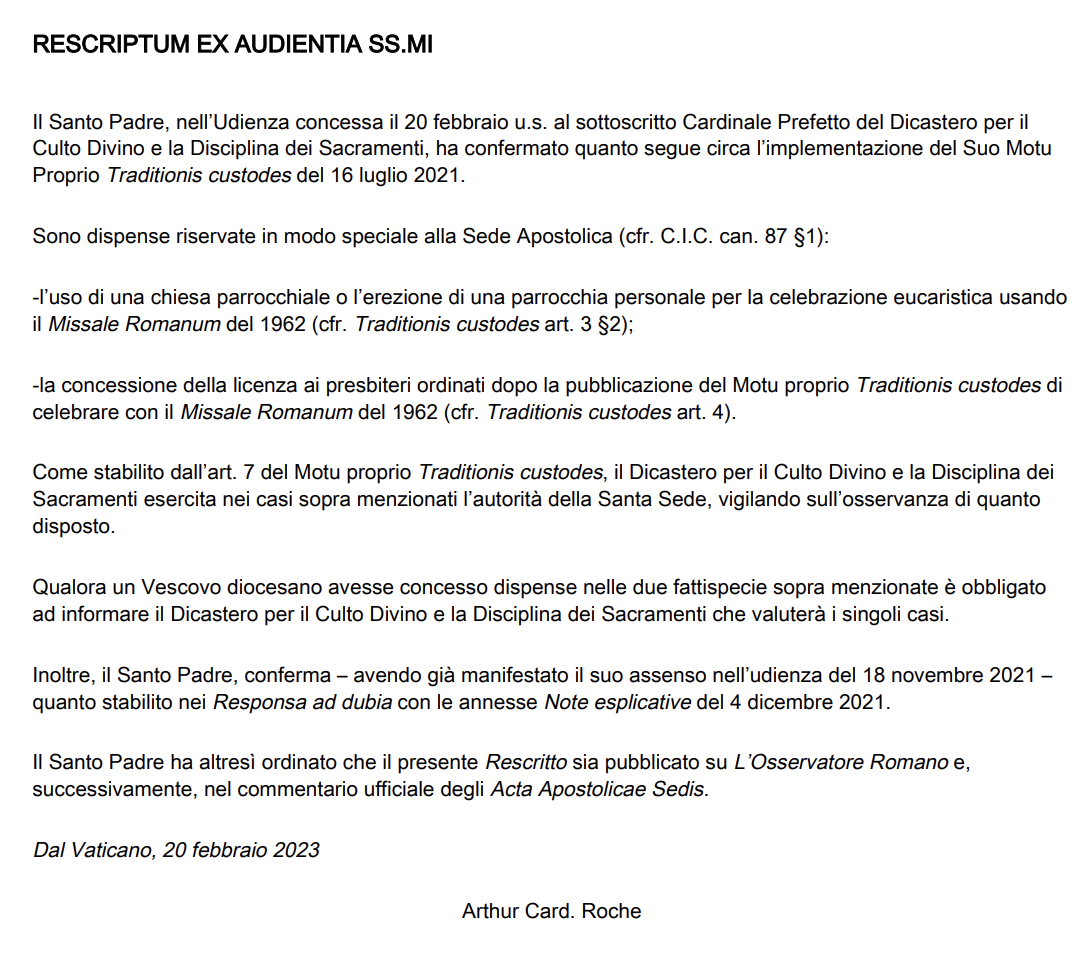The Pope signs a Rescriptum contradicting what he wrote in 2021.
🇮🇹 Traditionis Custodes: Francesco alimenta la battaglia. A rischio la comunione
🇫🇷 Traditionis Custodes: François alimente le combat. La communion en danger
No desire for reconciliation or to diminish tension. Francis continues his ideological battle against all those who have a sensibility different from his own. Guiding him in these choices that seriously undermine the communion between Rome and the traditional realities are the prelates Arthur Roche and Francis Victor Viola.
With a Rescriptum Ex Audientia Ss.mi, the Pontiff this morning ordered an ‘implementation of his Motu Proprio Traditionis custodes’. A very questionable way of legislating is the one used by Jorge Mario Bergoglio. Yet, as we have pointed out in quite a few other situations, Francis uses Rescripta at will and signs hundreds of them.

At the same time, as emerged in the London trial, he very often
forgets the rescripts he has previously signed and the Church becomes a
circus. The papal authority, which Francis likes to exercise in a
despotic manner, thus becomes less and less ‘divine’ and more attackable
by those who do not agree with what is done by the Pontiff himself.
The Rescriptum, obtained by Roche, says: “the
use of a parish church or the erection of a personal parish for the
celebration of the Eucharist using the Missale Romanum of 1962 and the
granting of a licence to presbyters ordained after the publication of
Motu proprio Traditionis custodes to celebrate with the Missale Romanum
of 1962” is reserved to the decision of the Apostolic See.
The
Pope, therefore, contradicts what he said in the Motu Proprio
Traditionis Custodes of 16 July 2021. In fact, in the text of the Motu
Proprio he wrote: The diocesan bishop “is to designate one or more
locations where the faithful adherents of these groups may gather for
the eucharistic celebration (not however in the parochial churches and
without the erection of new personal parishes)” and “Priests
ordained after the publication of the present Motu Proprio, who wish to
celebrate using the Missale Romanum of 1962, should submit a formal
request to the diocesan Bishop who shall consult the Apostolic See
before granting this authorization”.
Let us not forget that
in recent months many bishops have adapted to apply the provisions of
the Motu Proprio and have acted according to this clear dictate.
Today, with this Rescript, Francis says: “Should a diocesan bishop have
granted dispensations in the two cases mentioned above, he is obliged
to inform the Dicastery for Divine Worship and the Discipline of the
Sacraments, which will evaluate the individual cases”. In essence, we
are starting from scratch? Once again, therefore, the bishops are
deprived of their power of governance over their dioceses and their
decisions are trampled on by Rome. Francis spoke of Synodality, Listening, Collegiality. In practice, though?
Finally, from a canonical point of view, questions arise. The Rescript speaks of ‘integration’ not ‘abrogation’. Does the Pontiff want to amend a Motu Proprio with a Rescript? There is also a hierarchy of sources. A certain coherence would also be necessary. If
I write on 16 July 2021 that it is the bishop’s duty, can I, after only
a year and a half, cut everything to the ground and start from scratch? Francis continues to be contemptuous of the law.
Bergoglio said he was concerned about unity, concord and peace. Can we spend words for world peace when we do not even promote that peace in our Church?
R.I.
Silere non possum
